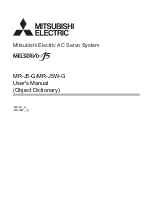
Manual-11
for listeners in the initial, center seats may not find this delay
acceptable. Assuming that no propagation delay is added
through other digital signal processing or a digital console
(this may be the case), the additional network delay of 6.5175
feet assuming NM 84s on and off the network may place
the arrival time of the direct sound versus the acoustic arrival
outside the Haas effect time. This would make the propagation
delay unacceptable for this application. If youre implement-
ing a mic snake type of application and are including the
monitor audio for stage members on the network, be sure to
not exceed an acceptable delay time; a delay time not much
more than 10 milliseconds (or hopefully less) is probably
acceptable for monitor applications. Decide for yourself.
That being said, there are upcoming technologies (i.e.,
vaporware) that may cut this network propagation time in half
or more. But, like most vaporware, wed have to kill you after
we told you about it. So, when this really becomes available,
well let you know. This way, we wont have to kill you now.
Cables. Unlike simpler analog audio cable, choosing and
installing CAT 5 network cable and connectors can be
challenging and deceiving given that 100 megahertz data is
being transported. Plus, the connector termination is not
intuitively obvious; get it wrong and youll spend hours
blaming equipment when its the cables all along. (I know this
because Ive spent a full day and a half suspecting equipment
when the cables were to blame. And yes, the cables had tested
fine with a continuity tester, but a continuity tester is nowhere
near good enough a test for the required 100 megahertz data
were talking about here.) This cable stuff requires special
attention beyond that normally paid by us audio guys who are
now trying to implement these newfangled audio networks.
Do yourself a favor and visit Peak Audios website where
they have a great primer on Network Cabling.
http://www.peakaudio.com/cobranet/network_cabling.htm.
Finding or training people to deal with network cable and
network troubleshooting is a worthwhile investment if your
future includes networked audio systems.
Remember that the network hardware devices chosen for
your network go hand in hand with the Bundles required to
deliver audio for a given application. Multicast networks/
Bundles can be transported over repeater hubs or over
switches; Unicast networks/Bundles require using switches.
You cannot transport unicast data over repeater hubs.
Although the Network Hardware (Table 2) and the
CobraNet Bundle (Table 1) are similar, they are listed sepa-
rately since, for example, multicast data can be transmitted
over repeater hubs or switches. Thus listing them separately
allows you to determine which approach is best for your given
application.
When observing the indicators on switch ports for
CobraNet devices, Rane NM devices appear as full duplex
devices. (Rave devices available from our friends at QSC
Audio appear as half duplex; this may change however, so
check with QSC.)
A Few Words About Networks
The opening primer in the Quick Start about designing a
network makes it sound so easy and it is, relatively but its
like using three sentences to say design a sound system for a
building. Like many technologies, there is always something
new to learn. Networks and Ethernet may be new to audio
folks, but theyre old news to computer types. Here are a few
good places on the Internet for more information on these
subjects:
Ranes main network help links page:
www.rane.com/ethernet.html
Network Design:
www.peakaudio.com/CobraNet/Network_Design.html
The folks at Peak Audio are, obviously, an invaluable
resource for CobraNet information. Do not underestimate
their interest in the success of your designs or their willing-
ness to help with network design or the myriad questions
that arise.
Johns Closet - A down-to-earth set of networking how-
tos: www.johnscloset.net
Ethernet Tutorial - A wonderful tutorial in plain English
from Lantronix:
www.lantronix.com/training/tutorials
Informit.com - Free online books about programming
include lots of Web stuff
Network Design Tutorials & Other Resources - An indus-
trial-strength link list of networking topics:
www.alaska.net/~research/Net/nwpages.htm
Ethernet Information - Network Basics / Cabling:
www.windowsnetworking.com/j_helmig/basics.htm




































